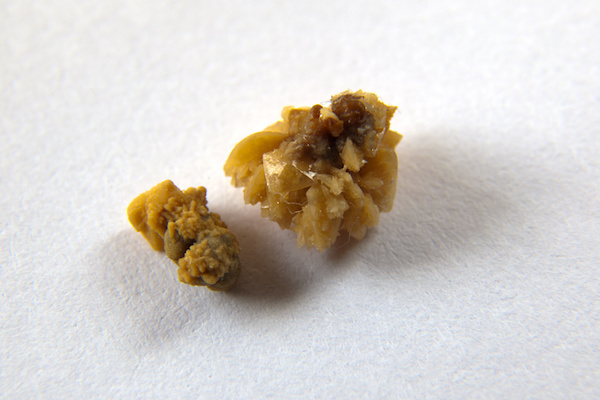What Are Kidney Stones & What Causes Them? | Tennessee Valley Urology Center

If you’ve ever been around someone suffering with kidney stones, it’s likely an experience you want to do everything you can to avoid. It’s been called the closest men can get to birthing a child, with women with first-hand experience of both rating the pain equally.
There’s plenty we still don’t understand about what causes kidney stones, including why some people don’t get them while others do. But we know a lot about them, including how to help those suffering from them.
What Are Kidney Stones?
Kidney stones are deposits of minerals and salts that collect in pellets in the kidneys.
While they form in the kidneys, they can move throughout the urological system and are typically ultimately expelled through the bladder and out the urethra with urine. Unfortunately, larger stones may need treatment from medical professionals like ours.
Stones typically measure just a few millimeters, though they feel massive to those who have them. They can cause pain that ranges from dull aching to sharp stabbing that starts in the abdomen and seems to crawl through the entire torso.
What Causes Kidney Stones?
We know some things that correlate with stone development, but we don’t know why people who have essentially the same lifestyles don’t all get stones or not. Among the practices and physical characteristics that can increase risk of developing kidney stones are:
- Carrying excess weight, particularly with a high BMI
- Getting an excess of vitamin D or C
- Having a diet high in salt, protein and oxalates
- Not getting enough calcium in your diet
- Leading a sedentary lifestyle.
Some 13% of men and 7% of women get kidney stones. Among those who develop them once, more than half will get them again within five years and 80% will endure another bout within 10 years. That means millions of Americans each year suffer from kidney stones.
If you think you have kidney stones or have a diagnosis and want to know your treatment options, schedule an appointment with Tennessee Valley Urology Center today.
